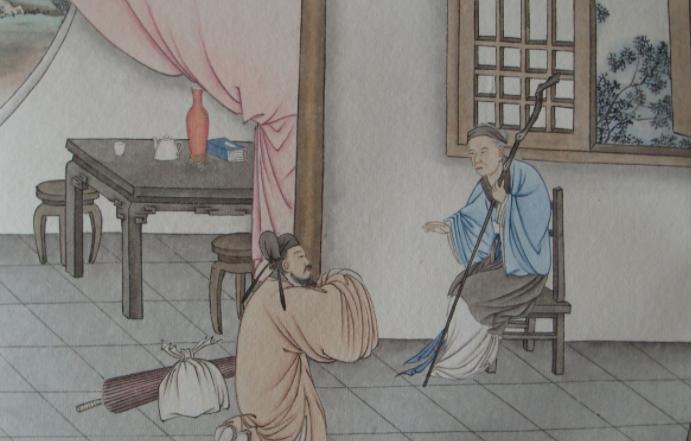Filial piety is a very important part of China's traditional culture, from ancient times to the present, there are classic famous sentences such as "filial piety is the first", "do not raise children, do not know how to repay the mother's kindness", "no filial piety has three, no queen is greater" and so on.
In life, some parents like to use the phrase "no filial piety has three, no queen is greater" to spur children who have not yet married and have children, which means that no offspring is the greatest filial piety. So, the question is, there are "three" in filial piety, and what does the other "two filial pieties" refer to?

(The pictures are all derived from the network, invaded and deleted)
The phrase "No filial piety has three, and no queen is greater" comes from Mencius. Away from Lou Shang: "There are three filial pieties, and no queen is greater." Shun did not tell and married, for no queen, the gentleman thought that Judas also told. ”
The meaning of this sentence is that there are three kinds of filial piety, no offspring or incomplete descendants are the greatest filial piety, and Shun's failure to tell his parents when he marries his wife is that he has not fulfilled the duty of his descendants, but the gentleman believes that this is equivalent to asking his parents for instructions.
Reading the full text, it is impossible to find out what Mencius's so-called three filial pieties refer to specifically, modern people are very controversial about "no queen", some people think that there are no offspring, and some people think that they have not fulfilled the obligations of future generations. So what do the remaining two "unfilial pieties" mean?
The Eastern Han Dynasty classicist Zhao Qi explained it in the book "Commentary on the Thirteen Classics" - "Yu Li has three filial pieties: saying that Ayi Qu is subordinate, trapping relatives and unrighteous, one is not filial piety; the family is poor and the elderly, not for Lu Shi, the second is not filial piety; not marrying childless, the ancestors are ancestors, and the three are not filial piety." ”
Unfilial piety is an unrighteousness, which means that if one obeys a wrong parent without principle, and allows him to do whatever he wants and makes him an unrighteous person, it is a kind of filial piety.
After parents make mistakes, children should take correct measures to correct them, so as not to trap their parents in injustice.
The second filial piety is the family is poor and the elderly, which means that the poor family is not good at struggling and working hard, but relying too much on the parents (nibbling on the old), it is not filial piety.
Crows still know how to feed back, as children, when they grow up, they should know how to make a living, take on their due responsibilities, and know how to support and filial piety to their parents.
At present, people think that "no filial piety has three" and Zhao Qi's commentary are quite similar, and the words of the ancients have reference value, but they cannot be fully believed. As children, they should be filial to their parents, correct their parents' wrongs, and fulfill their due responsibilities and obligations.
#Filial Piety#, #Filial Piety#, #Parents#, #俗语 #
Author: Pearl
Editor-in-Charge: Pearl